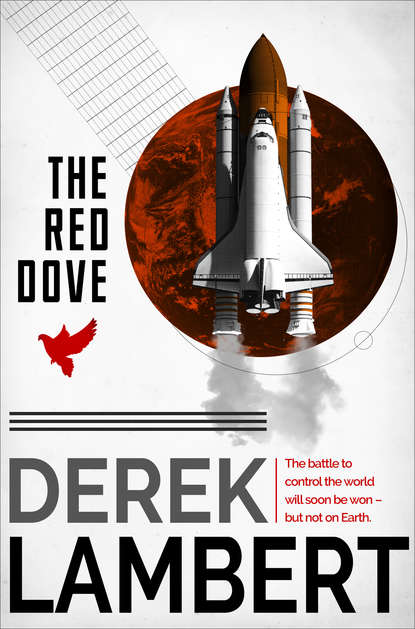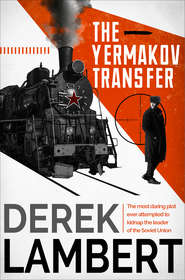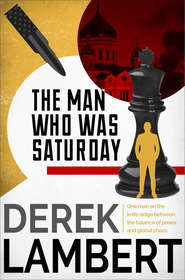По всем вопросам обращайтесь на: info@litportal.ru
(©) 2003-2024.
✖
The Red Dove
Автор
Год написания книги
2018
Настройки чтения
Размер шрифта
Высота строк
Поля
‘Affirmative,’ Sedov replied.
‘We were worried about Comrade Talin?’
Sedov frowned. ‘He looks healthy enough from where I’m sitting.’
‘His heart-beat went up to a hundred and twenty just now.’
Again Sedov’s dark eyes appraised Talin as he said to the controller: ‘Maybe he was thinking about Sonya Bragina.’
‘That,’ said the controller, ‘is a remarkable observation, because it so happens that we have Sonya Bragina here waiting to talk to Comrade Talin.’
This time Talin himself felt his pulse accelerate as he heard Sonya’s voice, pictured her at Mission Control, wearing her severe, dark blue costume to make her look more like a Party member than a dancer, blonde hair braided and pinned – remembered her the last time he had seen her, naked on the bed in her apartment in Moscow.
What was happening was obviously the dream-child of a Kremlin publicist. Bolshoi ballerina converses with lover in space; as subtle as a Pravda editorial but more effective. And if Dove 1 crashed into the Siberian steppe then the Russian people would always remember the last, space-age conversation and weep delightedly.
Ironic, he thought, that at this historic moment I should be hurtling towards the United States of America.
‘Hello, Nicolay, how are you?’
‘I’m fine,’ he said.
‘Where are you now?’
‘Right above you.’
‘Your mother sends her love. And –’
‘Yes?’
‘I love you.’
Talin guessed that someone had prompted her because, although she was by nature passionate, she wasn’t demonstrative in public, certainly not for the benefit of the millions watching and listening on television and radio.
Now he was expected to respond: ‘And I love you,’ but he rebelled because the whole exercise was so gauche; there was nothing they could do about that and she would understand.
He said: ‘Do you know what I fancy now?’
A nation held its breath. Sedov raised an eyebrow.
Talin said: ‘A plate of zakuski, salted herring perhaps with beetroot salad, followed by a steak as thick as a fist washed down with a bottle of Georgian red.’
He thought he heard her laugh but he couldn’t be sure; the laugh would be surfacing all right but she had the discipline to fight it back. Anyway, their audience would appreciate the remark: a man wasn’t a man unless he indulged his belly.
She hesitated, the Kremlin script in tatters. ‘Aren’t they feeding you all right up there, Nicolay …?’ Her voice faded as she realised that she had made a mistake, implied criticism.
He came to her rescue. ‘I was only joking. The food’s fine.’ Well, not bad, if you liked helping yourself to re-hydrated vegetable soups, blinis and coffee in slow motion to combat weightlessness.
‘I miss you, Nicolay.’
Another cue. He ignored it.
‘Ten more orbits,’ he said, ‘and we’ll be down.’
‘Goodbye, Nicolay.’
‘Goodbye, darling.’ Sweet compromise. ‘Don’t forget the zakuski.’
And she was gone.
‘Well,’ said Sedov, ‘I didn’t realise I was in the presence of a great romantic.’
‘I’m not a ham from Mosfilm,’ Talin told him.
Even that was a perversity: Mosfilm made good movies. Perhaps space had got to him; it could cause disorientation, which was why cosmonauts underwent so many psychological examinations.
That would explain his aberration when he heard about the invasion of Poland. A side effect of the transition into space, awareness of the curve of the globe below and the void above.
The Soviet Union occupied a sixth of the world’s land but in orbit he had seen the other five sixths. The pendulous sacks of South America and Africa, oceans scattered with fragments of land … Space and freedom had become one, the breeding ground of fantasy.
Beneath them now was the cutting edge of the United States. In eleven minutes thirty-eight seconds they would have crossed the North American continent. Dove had reached the Mid-West when another irrational notion presented itself unsolicited to Talin: what would happen if, because of a malfunction, they were forced to land in America?
Far away in the Crimea one of the scientists monitoring the shuttle reported that Talin’s heartbeat had increased to 125.
When darkness returned to Earth, when, that was, the globe was between Dove and the sun, the disturbing spectres fled, the reverse of the norm on earth when the fantasies of night vanish with the dawn. And Talin and Sedov began to prepare for their return to Mother Russia.
Both shared one doubt about the shuttle: they feared that, like the spaceship destined for Venus that had exploded on the launch-pad in October 1960, killing Field Marshal Mitrofan Nedelin and scores of technicians, it had been put into production too quickly.
The Kremlin was obsessed with firsts. The first satellite into space, Sputnik 1 in 1957, the first man in space, the late Yuri Gagarin in 1961. They had been mortified when, in 1969, American astronauts had made the first landing on the moon, paranoic when, in April 1981, the Americans had soft-landed their shuttle Columbia in California.
That achievement had heralded the dawn of an age when Man could commute in space, when passengers could visit floating hotels and return home in a winged ship that looked like an ordinary jet airplane – a ship that could be used time and time again.
It had also heralded the possibility of a titanic power struggle. With a shuttle a super-power could deposit convoys of spy satellites in orbit equipped with beam guns and telescopes that could sight a kopek coin 400 miles away.
The Russians had been poised to launch this new age but they had been beaten to it by the Americans who had also had the gall to make the launch on 12 April, 1981, the twentieth anniversary of Gagarin’s first orbit.
So they had postponed the launching of their prototype scheduled for 18 January, 1982, and concentrated on another first: building a fleet of space trains modified to construct, rather than merely deposit, stations in space.
Fears that the Kremlin was dangerously obsessed with the race to overtake the US initiative were realised in September 1982 when the first unpublicised launch aborted on blast-off.
There were two more trials, one successful, one not, before Dove 1 finally went into orbit with Sedov and Talin at the controls on 9 May 1983, Victory Day. Not all the refinements had yet been incorporated; but the Kremlin could boast that it possessed the command ship of its construction fleet in space.
The military potential of Dove, including some of the refinements, was the responsibility of the Commander, Sedov. Talin accepted that it would have to be armed: you had to defend yourself. But, projecting the dreams of his youth into the firmament, he saw himself as a pioneer of peace in space.
And the Kremlin backed him. Having accused the Pentagon of building Columbia to lay a trail of nuclear mines in orbit they assured the world that their aim was the peaceful exploration of the heavens.
Dove not Hawk.
The red and white ship looked much the same as its American sisters. It was 190 feet long with swept-back wings and brutish engines in its tail; on its back it bore a cargo bay with a capacity of forty tons, ten more than Columbia; in its inquisitive-looking nose there were three decks – storage area, living quarters and flight deck.











